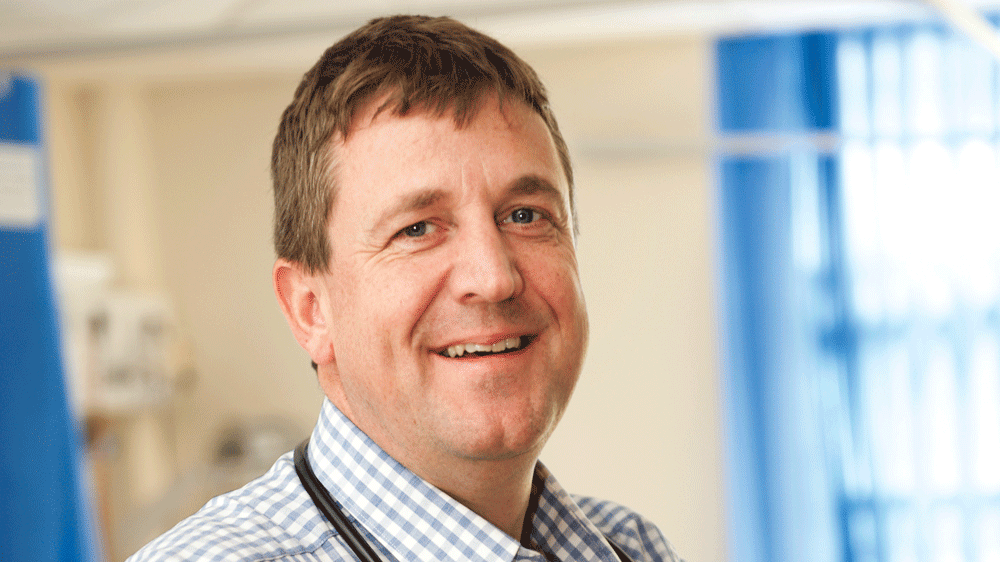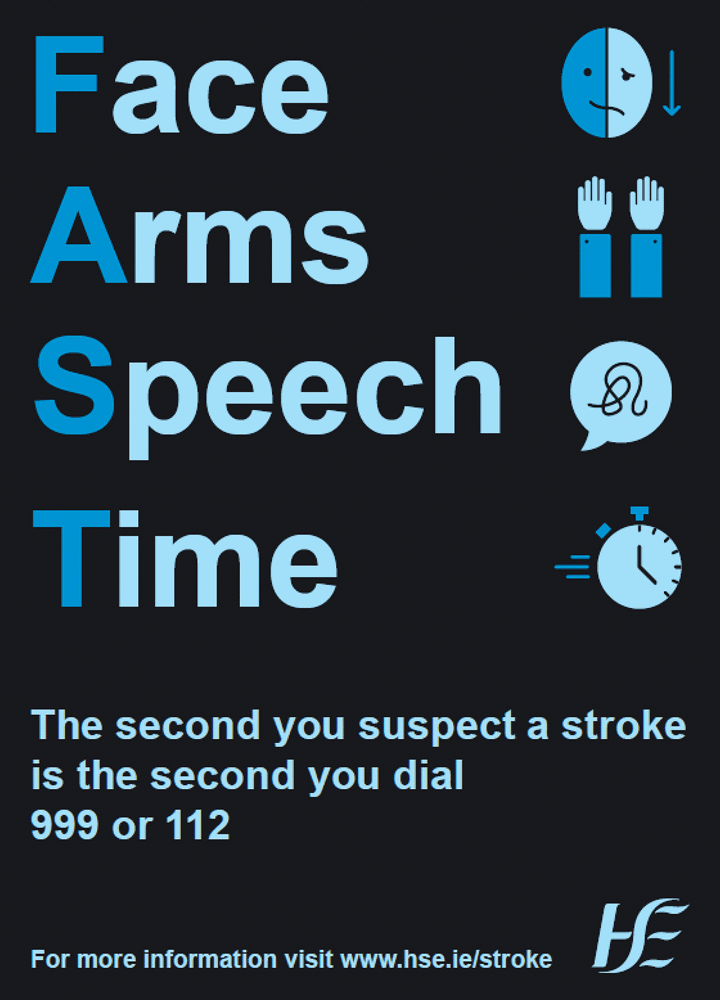
Let’s Talk About: Stroke Awareness Message
In this monthly column from Tallaght University Hospital, Professor Rónán Collins, Consultant Geriatrician at TUH and the HSE National Clinical Lead for Stroke in talks about Stroke and the importance of time.
Stroke remains one of the most serious health emergencies we face in Ireland. One in four of us will have a stroke. Stroke is the third leading cause of death and the leading cause of acquired neurological disability.
Every year, around 7,500 people experience a stroke, and over 90,000 live with its lasting effects. Yet despite improvements in public awareness, too many people still delay seeking help, this delay can cost lives.
That is why earlier this month, the HSE launched a new national campaign, Every Second Counts, to reinforce the urgency of recognising stroke symptoms and calling emergency services immediately.
The message is very simple: the second you suspect a stroke is the second you dial 999 or 112.
We continue to promote the F.A.S.T acronym to help people identify stroke symptoms quickly:
- Face – Has one side of the face drooped?
- Arm – Is one arm weak or clumsy?
- Speech – Is speech slurred or confused?
- Time – Time to act FAST: call 999 or 112 immediately.

Acting fast with stroke is the difference between recovery and lasting damage.
Treatments that save lives and reduce disability are most effective within the first three hours of the symptom(s) starting and the sooner you get diagnosed and treated the better the outcome. Yet fewer than half of stroke patients currently reach hospital within that window.
Tallaght University Hospital has a consultant-led 24 /7 acute stroke service and treats over 500 acute strokes or threatened strokes a year in its’ acute stroke unit and associated stroke rehabilitation unit at Peamount hospital and through its’ Early Supported Discharge service.
There are significant strides being made in stroke recovery.
The Early Supported Discharge programme enables stroke survivors to begin rehabilitation at home with therapy, nursing and social work support. This model is helping people regain independence while easing pressure on hospital stroke units.
Stroke is a medical emergency, but with fast action and the right support, outcomes can be dramatically improved.
I urge everyone to learn the signs, act without delay, and share this message widely: Every Second Counts.
For more information, visit HSE.

